Malaysian firm develops package-less packaging
26 May 2020A group of Malaysian Ph.D. students won the Institution of Engineering and Technology (IET) Save our Seas global engineering challenge with their new bagless approach to food packaging called the PICAS block. The competition is hosted in partnership with Greenpeace.
This new plastic-less packaging is constructed out of carrageenan – edible red seaweed – and starch to create food blocks that are dissolvable with the application of hot water. While the solution is currently designed for loose, green foods such as beans, the team will begin experimenting with the implementation of this packaging system for grains and lentils.
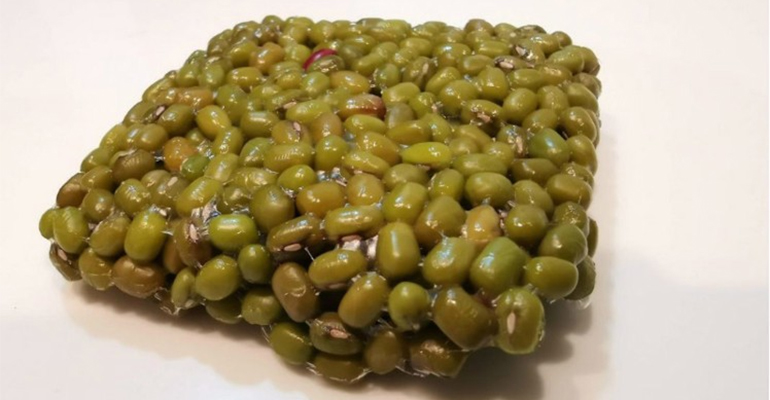
The problem statement for this most recent challenge asked competitors to design new reusable packaging or reimagine the approach of British supermarkets to dramatically reduce their need for single-use plastic packaging.
In the approach used by NanoMalaysia, the winning team in the competition, the beans are immobilized in a binding starch solution and then encased in carrageenan to prevent any moisture from reaching the product. The design also imparts tensile strength to the packaged beans thereby enabling them to be placed directly into a shopping basket from the shelf without any other protective packaging.
When submerged in boiling water, the starch-seaweed layer can be peeled back and the encased beans are released for cooking. The starch is tapioca-based rather than gelatin-based to make the packaging a viable alternative for all consumers.
Although single-use plastics provide convenience to consumers, they have fallen out of favor in recent years due to concerns about environmental sustainability. An EcoFocus Trends Survey from earlier this year showed a majority of US shoppers feel that healthy products should come with healthy and more sustainable packaging standards, which includes alternatives to plastic.
However, not only are consumers demanding more eco-friendly solutions, but they are willing to pay more for them, too. According to the survey, 64% of millennials say that "to them it is worth paying more for eco-friendly products," which is up 26% compared to the Baby Boomer generation.
Seaweed is a unique choice for this award-winning packaging alternative, albeit one that is growing in popularity. Edible and biodegradable packaging options have come into vogue in recent years and were even spotlighted as one of the top packaging trends for 2020. However, the idea was already in the works as early as 2017 when an Indonesian-based startup called Evoware debuted its edible wrapper made from seaweed. The company’s packaging can be eaten solid, or, much like NanoMalaysia’s solution, can be dissolved in boiling water.
While the idea for edible or biodegradable sustainable packaging is nothing new, it is one that will likely continue to gain steam as consumers continue to look for creative solutions from companies that promote both eco-friendly practices and convenience.
Related news

Plastic packaging reduction requires industry rethink
6 Jan 2023
The food and beverage sector is calling for industry-wide collaboration and business model updates to reduce the environmental impact of plastic packaging.
Read more
Asian beverage brands deal with rising costs
4 Jan 2023
Decreasing bottle sizes or increasing prices? Asian beverage brands are finding “creative approaches” to manage rising costs, according to industry analysts.
Read more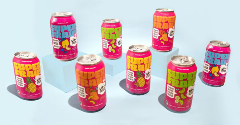
Superfrau upcycles liquid whey for energy drinks
22 Dec 2022
US company Superfrau turns surplus whey into sustainable, upcycled-certified dairy products for the recovery drinks market.
Read more
Malaysian brand Nanka brings jackfruit range to Europe
21 Dec 2022
Malaysian brand Nanka is expanding to new Asian and European markets with its fast and ready-to-eat plant-based products based on jackfruit.
Read more
Plant-based fish and seafood launches around the world
12 Dec 2022
From pea protein-based prawns to microalgae-based tuna alternatives, plant-based alternatives to fish and seafood are on the rise around the world.
Read more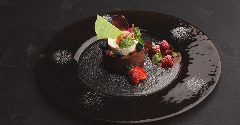
Editors’ choice: Our roundup of the most innovative sweets, snacks and bakery products
9 Dec 2022
The sweets, snacks, and bakery categories are an exciting area, full of fresh and innovative products which are constantly adding meaningful value to the sector.
Read more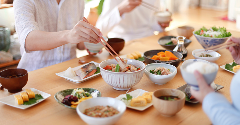
Functional food in Japan centres on health and proving claims
8 Dec 2022
The latest Japanese functional food and drink trends put health and product efficacy firmly on the production agenda for new releases.
Read more
Editor’s choice: Our roundup of the latest women’s health products around the world
2 Dec 2022
From botanicals to combat menopause symptoms to a hydration powder for mothers-to-be, here is our roundup of the most innovative new product launches within women’s health.
Read more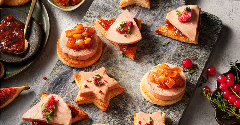
Nestlé becomes latest brand to launch vegan version of foie gras
1 Dec 2022
Foie gras, a traditional staple of Christmas dinner across France and other European countries, has long been a controversial delicacy. Now, Nestlé has become the latest company to create a cruelty-free vegan version under its Garden Gourmet brand.
Read more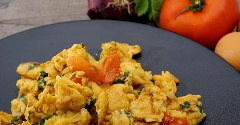
Nestlé launches plant-based egg in Latin America
29 Nov 2022
Nestlé has launched a powdered plant-based protein under its Mahler brand that consumers can add to egg dishes such as omelettes, allowing them to make dishes that are cheaper but still nutritious, it says.
Read more